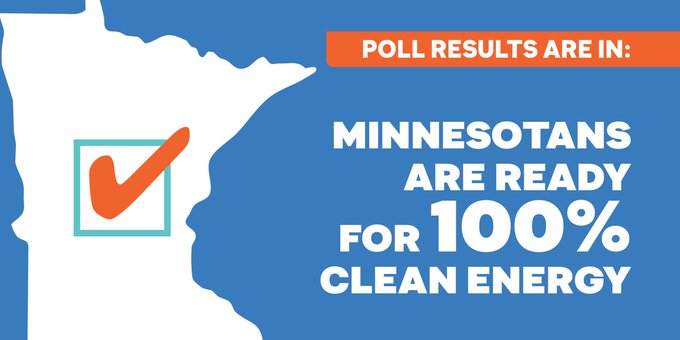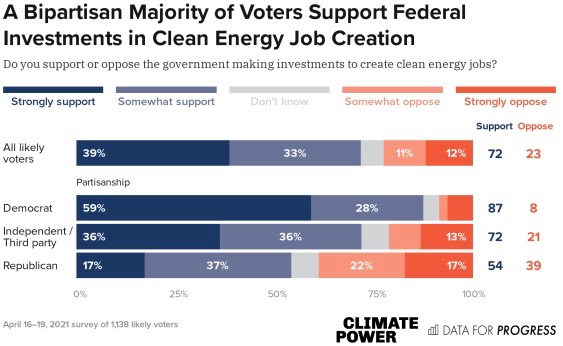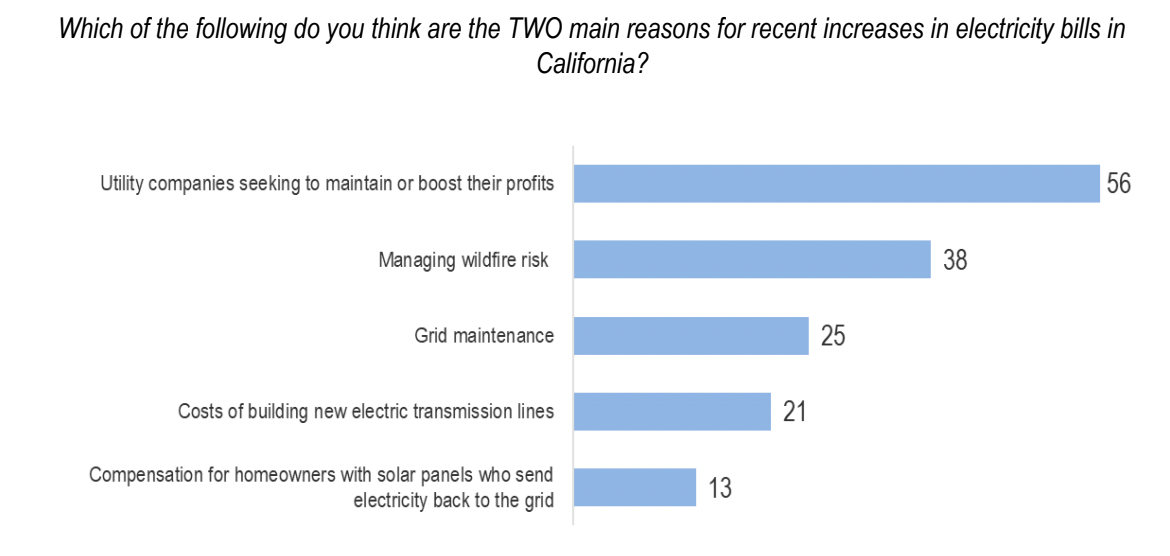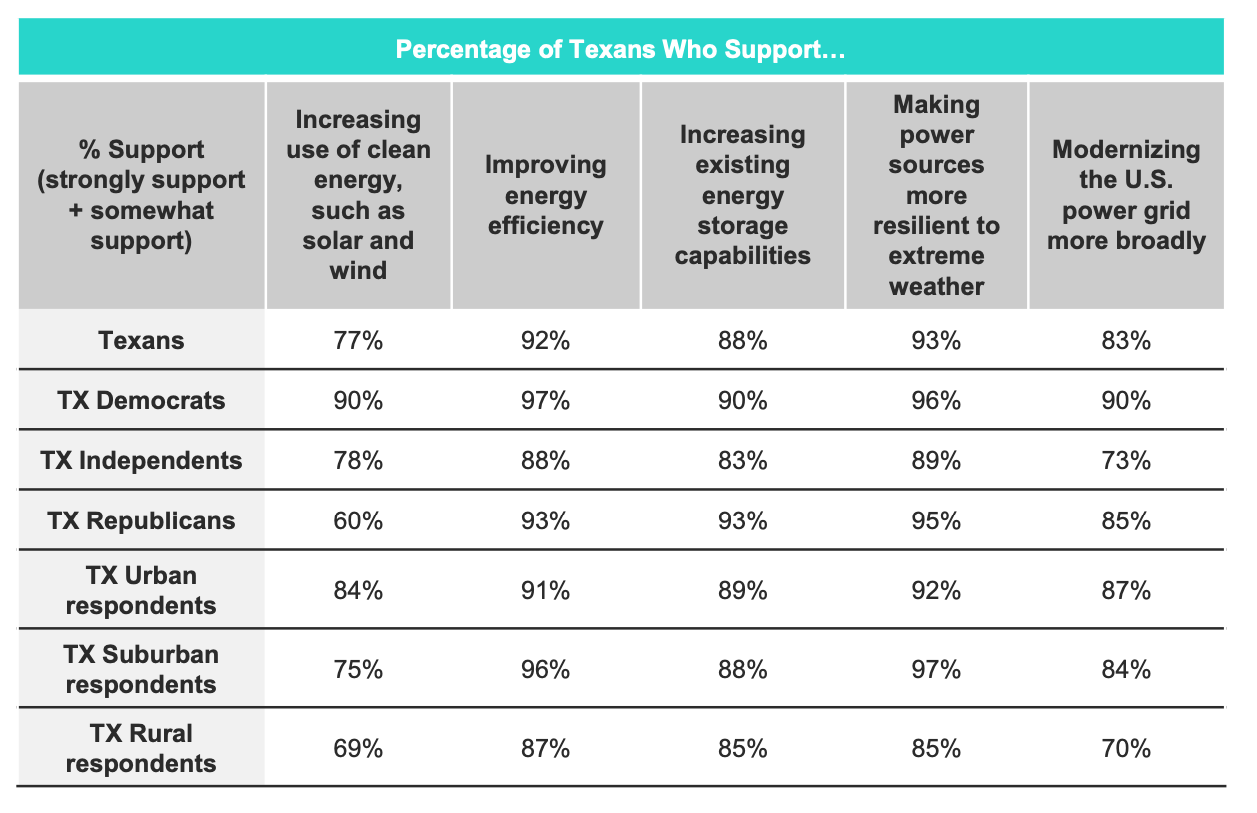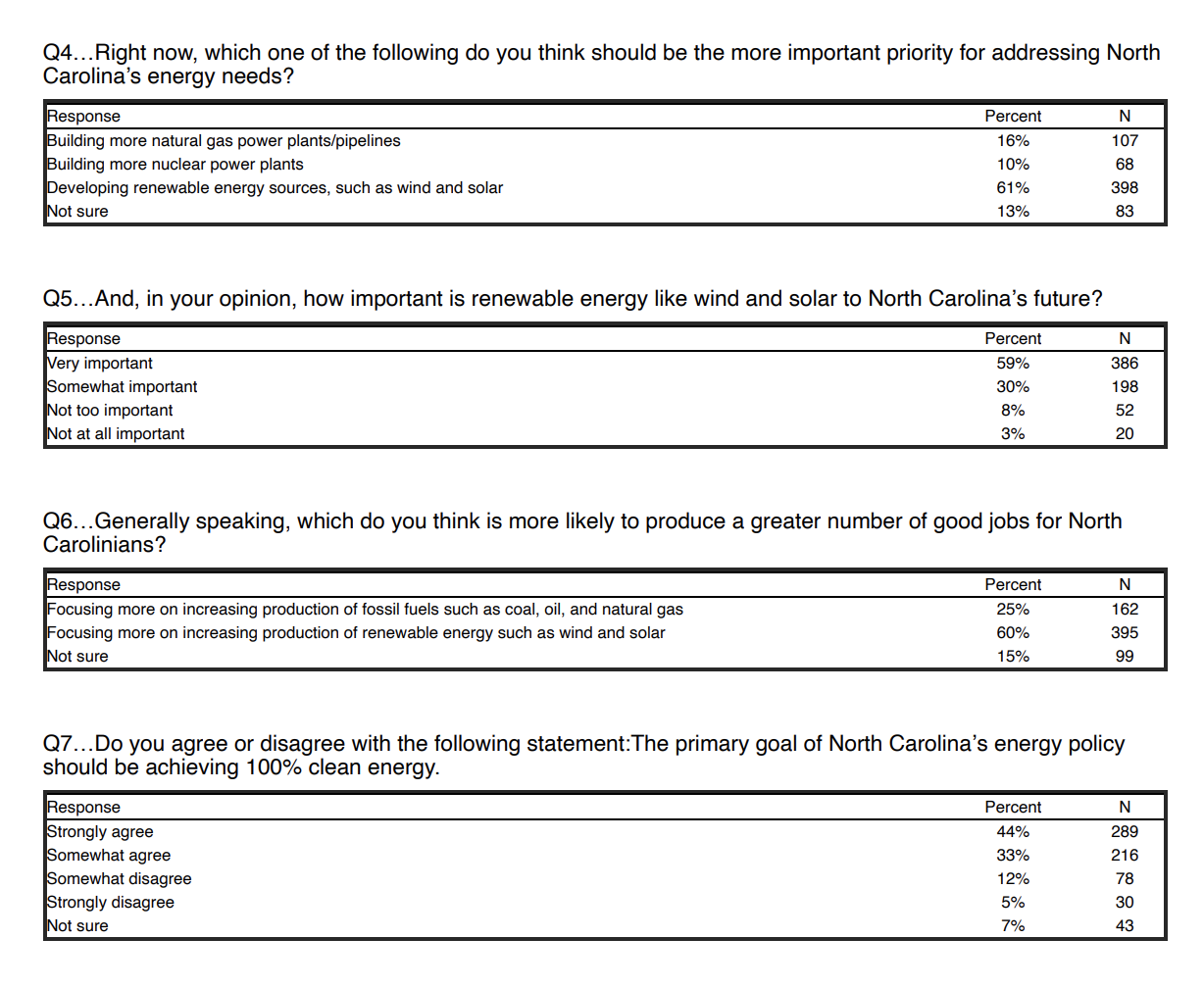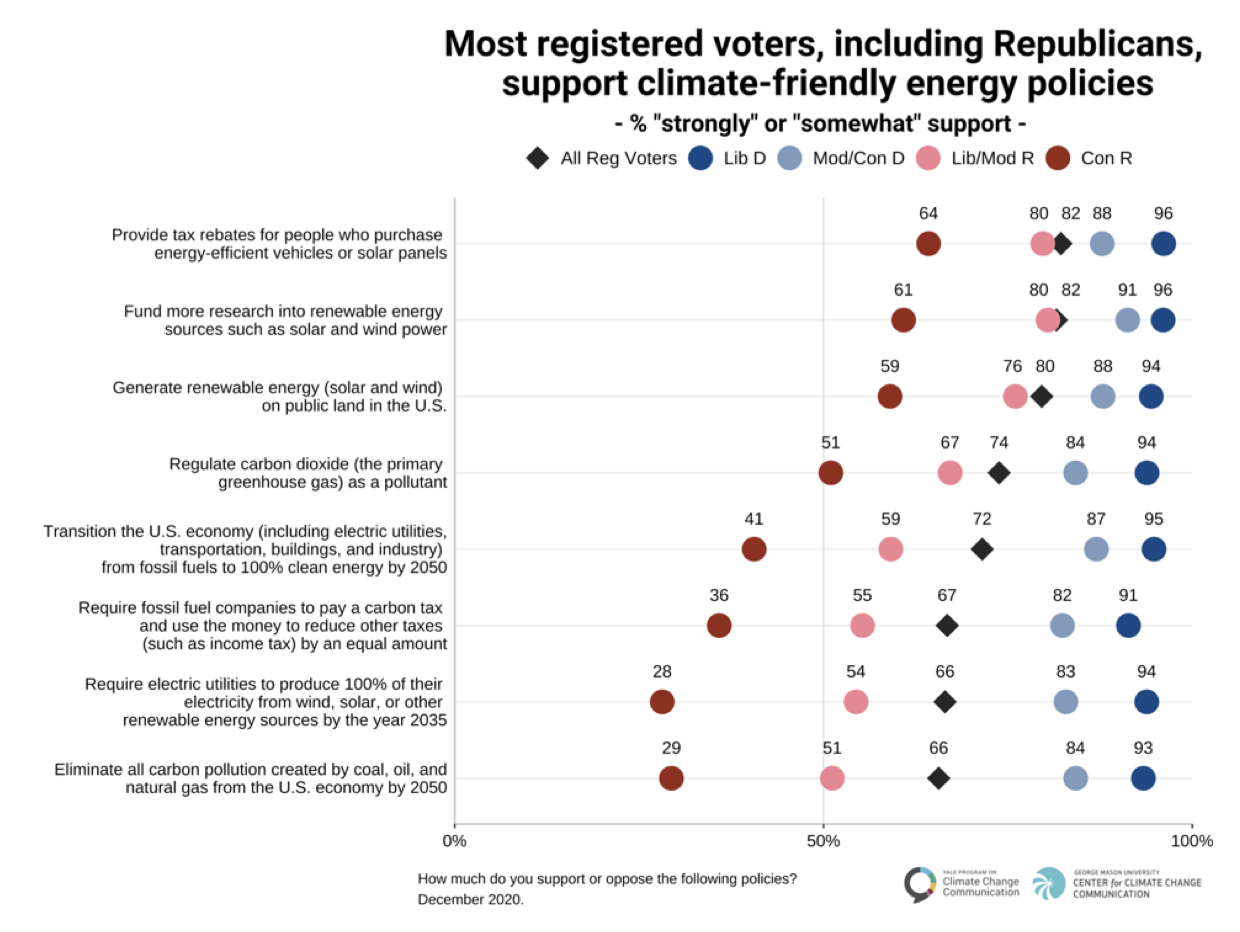Resources
Search below for resources covering the intersection of climate engagement, social science and data analytics.
RESULTS
Poll: Majority of Minnesotans back clean energy
Minnesotans across the political spectrum strongly support transition to 100% clean energy sources, like wind and solar.
- 61% believe the transition to clean energy will benefit Minnesota’s economy, and 68%, (including 51% of Republican) believe it will have a positive impact on Minnesota’s environment.
- 66% of Minnesotans also support legislation to achieve a 100% reduction in greenhouse gas emissions. Support strong across the state, with 68% of voters outside the seven-county metro area supporting elimination of greenhouse gas emissions, compared with 66% within the metro.
- 67% of respondents also said they’re very worried or somewhat worried about water pollution.
New Poll: Voters Strongly Support Biden's American Jobs Plan
Americans want the federal government to invest in green jobs. This April 2021 survey finds bipartisan support for climate and clean energy parts of the proposed American Jobs Plan, such as retrofitting buildings, cleaning up abandoned oil wells and creating a Climate Conservation Corps. Most Democrats and Independents as well as 40 percent of Republicans are in favor of raising taxes on corporations and wealthy individuals to pay for the creation of green jobs as part of the plan.
Poll: After Historic Outages, Texans Favor Solar, Wind and Other Clean Energy
Polling research shows that after historic power outages in February 2021, most Texans are in favor of the state producing more renewable energy and reducing their dependency on fossil fuels.
- About six in 10 Texas voters say that the state should add solar (65%) and wind (58%) energy resources. There was less support for natural gas (45%), nuclear (28%), and coal (20%).
- 30% of Texas voters strongly agree and 26% somewhat agree that the primary goal of Texas’ energy policy should be achieving 100% clean power.
- 45% of Texas voters strongly agree and 32% somewhat agree that being a leader in clean energy innovation is important to Texas’s future.
Ask Me Anything with US Department of Energy Secretary Granholm
Secretary of Energy Jennifer M. Granholm went live for a special 30-minute “Ask me Anything” (AMA) exclusively for the Climate Advocacy Lab community. The US Department of Energy will be critical to the fight to stop climate change. Listen as community members ask questions of USDOE Secretary Jennifer M. Granholm. Our goal with this event is to get information to the field about the priorities of the US DOE and to uncover opportunities for the field to have more impact on these issues.
Poll: Voters Support Stimulus for Clean Energy, Climate
American voters strongly support clean energy infrastructure investments to kickstart the economic recovery, support action on climate change as part of stimulus recovery packages, and want their elected officials to support those policies as well.
As part of an economic stimulus package, a majority of voters support:
- Assisting states and regions recovering from recent extreme weather and climate disasters (79%);
- Reinforcing infrastructure to withstand the effects of climate change and extreme weather such as severe flooding and hurricanes (73%);
- Building new power lines to transport renewable energy (70%);
- Creating a jobs program for unemployed oil and gas workers to safely close abandoned oil and gas wells (69%);
- Expanding public transportation such as high-speed rail, subway and light rail systems, and electric buses (67%);
- Expanding tax credits and other incentives to expand renewable energy such as solar and wind (66%); and
- Building and expanding charging infrastructure for electric vehicles (59%).
Poll: Widespread support for California’s existing net metering policy
A large majority of Californians support existing net metering policy, and broadly oppose a proposal that reduces credits for people who contribute solar power to the electric grid.
- 71% believe the state of California should be doing more to encourage the use of solar power vs. just 14% who say it should be doing less.
- 80% of California voters support net metering (after hearing a neutral description of the policy), vs just 11% who oppose it.
- 64% of voters oppose a proposal to “reduce the credit that people who have rooftop solar receive from their local utility for any extra electricity that their rooftop solar generates and feeds back to the grid.”
- Keeping energy bills low is a priority for California voters – and they are far more likely to blame rising electricity bills on "utility companies seeking to boost or maintain their profits" (56%) and "managing wildfire risks" (38%) than anything related to solar.
Poll: Texans’ Opinions on Recent Extreme Cold
Survey of 500 Texans in the immediate aftermath of the extreme cold weather and resulting power outages found:
- Respondents expressed concern about extreme cold (78%), power outages caused by weather events (83%), and access to clean drinking water (76%). Concern spanned community types, and was highest (80%) among rural respondents.
- 79% say it should be a priority for the U.S. to pass legislation to address climate change
- Majorities across Texas support a wide range of legislative measures to prevent future power outages, including: increasing use of clean energy (77%), improving energy efficiency (92%), increasing existing energy storage capabilities (88%), making power sources more resilient to extreme weater (93%), and modernizing the U.S. power grid more broadly (83%).
Poll: Most NC Voters Support Wind Energy
77% of North Carolinians think the primary goal of the state’s energy policy should be achieving 100% clean energy and a majority (33% strongly; 38% somewhat) support the development of offshore wind farms. 70% of voters polled also believe the buildout of offshore wind along North Carolina’s coast would have a positive impact on jobs, the state’s economy, air quality and climate change.
Poll: December 2020 CEN Post-Election National Survey
This was a national survey of 1000 voters nationally on climate. This survey polled members on a myriad of different topic areas from clean energy, domestic energy production, oresidential ballot test, political environment to climate change.
Poll: Most Voters Support Ambitious Climate Action
Pagination
- Previous page
- Page 3
- Next page
